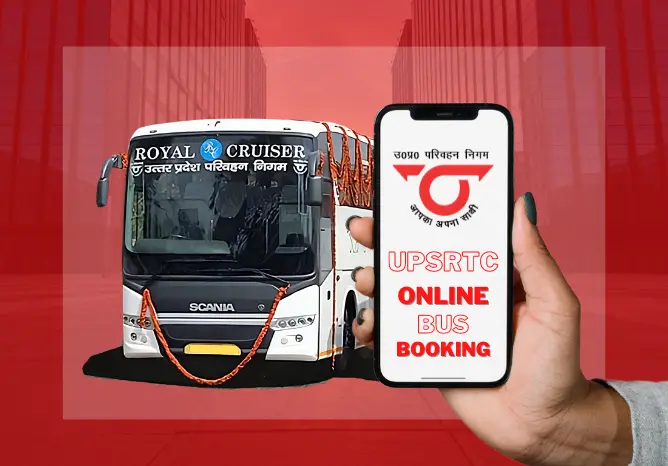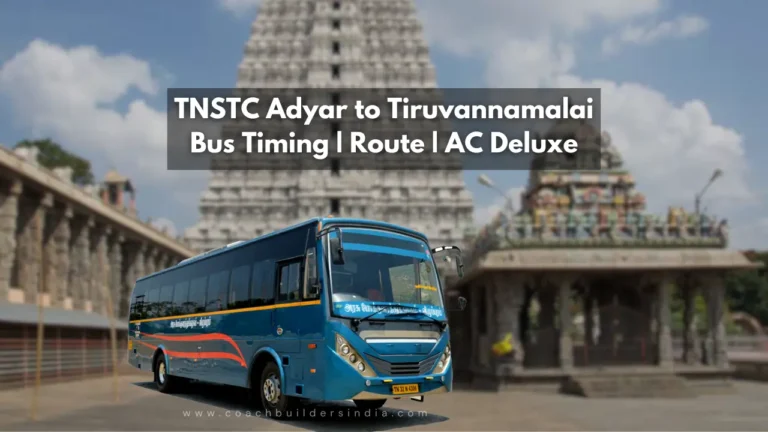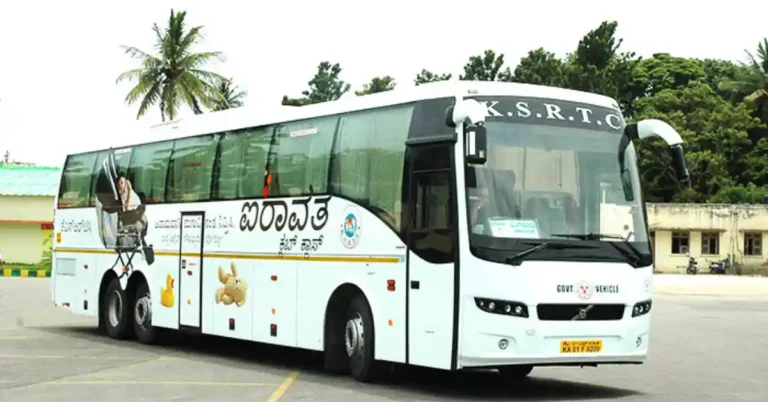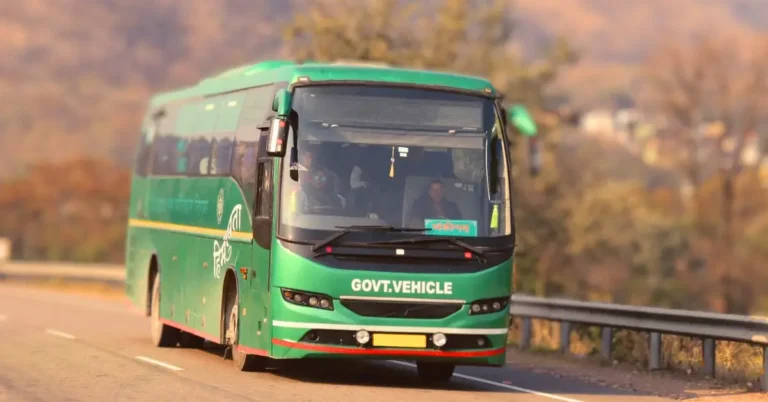Why are there so many buses between Bangalore and Rajasthan?
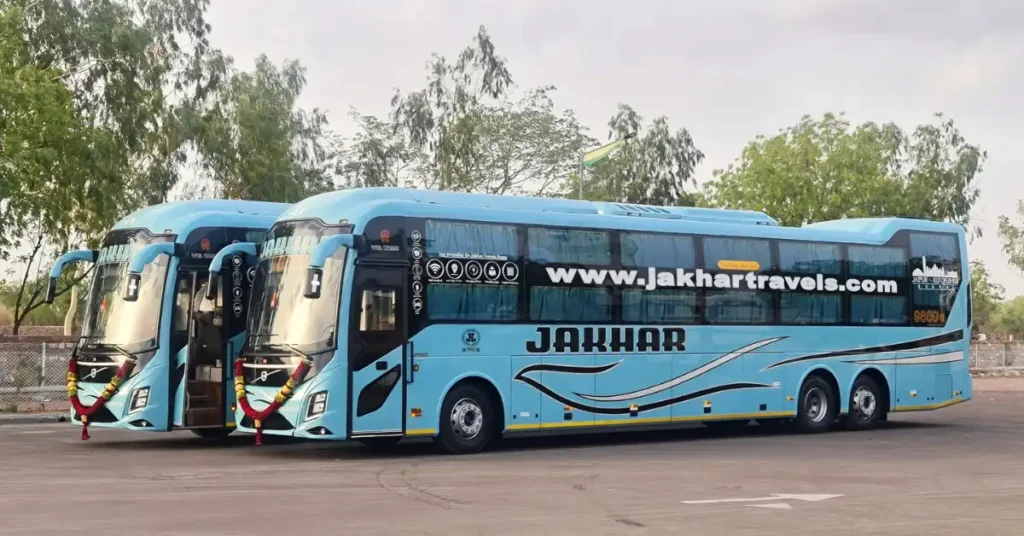
In recent years, the number of buses between Bangalore and Rajasthan has witnessed a remarkable increase.
Remarkably, four out of the top five longest bus routes in India are between Bangalore and various parts of Rajasthan.
This trend is further supported by listings on RedBus, showcasing approximately 30 daily bus services from Bangalore catering to destinations in Rajasthan such as Jodhpur, Jalore, Pali, Udaipur, Bhinmal, Abu Road, and Barmer.
Despite the considerable distance of around 2,000 kilometers and a travel time of approximately 50 hours, these routes continue to gain traction.
This piqued our curiosity, and we found ourselves asking: do people actually travel such long distances by bus?
To gain insights, we reached out to the bus operators operating these services.
And they gave us a good overview of the factors driving the increasing demand for buses between Bangalore and Rajasthan.
Factors Driving the Growth of Buses between Bangalore and Rajasthan
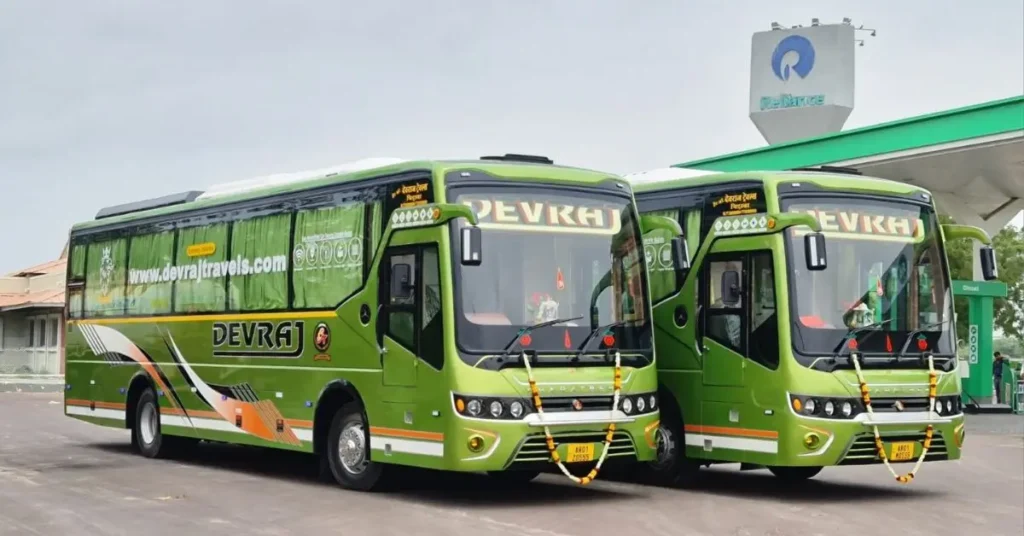
In the eyes of bus operators, there are several compelling reasons that make buses an attractive travel choice between Bangalore and Rajasthan.
Primarily, it’s important to note that a vast majority of passengers don’t undertake the entire journey.
Instead, these buses rely on picking up passengers along the way for shorter trips within this extensive route.
Take, for instance, the Bangalore to Jaisalmer route, which ranks as the second longest bus route in India.
Covering a staggering distance of approximately 2,000 kilometers, the journey spans around 45 hours.
The route traverses through various cities including Tumkuru, Hubbali, Kolhapur, Satara, Mumbai, Vapi, Baruch, Ahmedabad, and Barmer before reaching the desert city of Jaisalmer.
As a result, a significant number of passengers onboard these buses travel between intermediate destinations such as Bangalore to Satara/Pune, Mumbai to Ahmedabad, or Ahmedabad to smaller towns in Rajasthan.
Essentially, these buses act as a vital mode of transportation connecting the states of Karnataka, Maharashtra, Gujarat, and Rajasthan.
Bus operators also note that these services are predominantly utilized by businessmen and families with substantial luggage, highlighting their practicality and convenience for various types of travelers.
To sum it up, here are the primary reasons why passengers opt for buses between Bangalore and Rajasthan:
- Cost-Effectiveness Over Flights
- Challenges in Train Ticket Availability
- Ample Luggage Allowance
- Seamless and Continuous Journey
Cost-Effectiveness Over Flights
Flights are often perceived as relatively expensive, prompting an increasing number of travelers to seek cost-effective alternatives.
Buses have emerged as a viable option, especially for passengers traveling within Karnataka, Maharashtra, Gujarat, and Rajasthan.
With reasonable fares and no hidden fees, buses provide a budget-friendly choice for individuals looking to traverse the distance between Bangalore and Rajasthan without breaking the bank.
Additionally, buses cater to a diverse range of passengers, including budget-conscious travelers, families, and business professionals, making them an accessible and affordable option for all.
Challenges in Train Ticket Availability
Securing confirmed train tickets, particularly at short notice, can often seem like an insurmountable challenge.
This predicament is particularly pronounced for business-class passengers who frequently find themselves needing to make unplanned journeys.
However, buses emerge as a favorable alternative in such scenarios, as tickets are readily available and easily accessible.
The convenience and frequency of bus services provide a dependable solution for commuters, offering a reliable mode of transportation for last-minute travel plans.
Ample Luggage Allowance
One of the key factors emphasized by every operator is the generous luggage allowance offered by buses.
A considerable percentage of passengers on buses from Bangalore to Rajasthan are individuals or families traveling with substantial luggage.
Unlike flights, where excess baggage fees can quickly accumulate, buses provide travelers with the freedom to pack without constraints, offering a significant advantage in terms of convenience.
Furthermore, buses serve as an ideal mode of transportation for cargo, alongside passengers.
This cost-effective option appeals to courier companies seeking affordable and hassle-free transportation for their shipments.
Unlike the complexities associated with booking cargo on trains or the expense of air freight, buses offer a reliable and economical solution for transporting goods across states, further enhancing their appeal for both passengers and businesses alike.
Conclusion
In summary, the increasing prevalence of daily buses between Bangalore and Rajasthan underscores the strategic advantages buses offer in terms of cost, accessibility, luggage allowance, and travel continuity.
This trend aligns with the evolving preferences of a diverse range of travelers seeking reliable and efficient transportation options.
Catch the latest Bus Industry updates, Exclusive Interviews, Bus News, and International Bus News on Coach Builders India. Download the latest issue of the The Bus Insider magazine for more insights.

